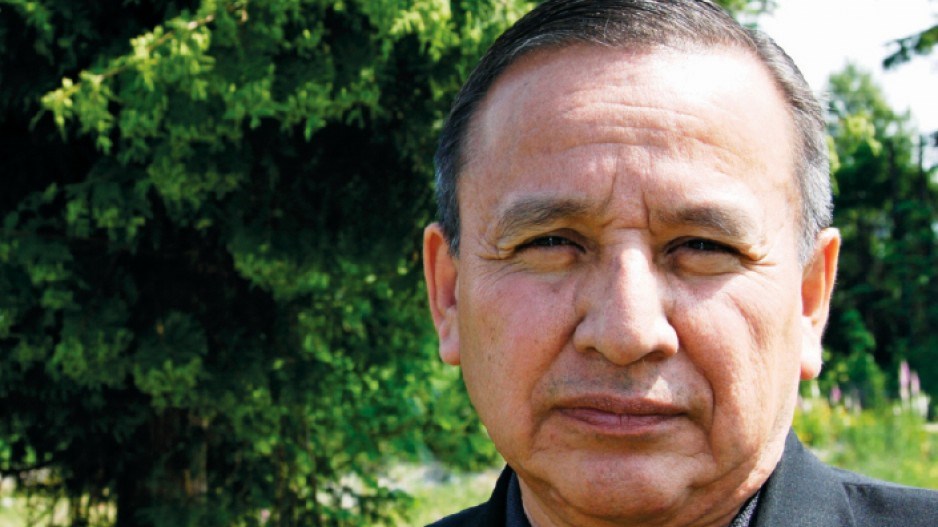"See you in court."
That's Stewart Phillip's response to the slew of non-treaty agreements the B.C. government has made with First Nations over the past two years.
Phillip, the grand chief of the Union of BC Indian Chiefs, has accused the government of rushing into the agreements that will cause friction between neighbouring First Nations whose traditional territories overlap.
But for Kathryn Teneese, treaty negotiator for the Ktunaxa First Nation, the agreements have improved communication between the Ktunaxa and the province and opened the door to future agreements with resource companies like Teck (TSE:TCK.B) and Canfor (TSE:CFP).
"The fact is that mining has been taking place in our territory for over 100 years, and benefits have never come our way," said Teneese. "So this opportunity to enter into an agreement that would afford us some sort of benefits from resource extraction that takes place on our territories, obviously we're interested."
Since 2010, Victoria has negotiated 18 of the agreements; the NDP told Business in Vancouver that if elected, the party would continue the practice.
The Ktunaxa have several agreements in place. A forestry agreement already gives them a share of revenue that would otherwise go to the province, and the band also has a "working agreement" with Canfor. But the end goal, said Teneese, is for the Ktunaxa to get more tenure in order to operate a profitable forestry operation.
In 2013, the Ktunaxa signed a second agreement to share revenue from any future mining projects. Teneese identified any future expansion of Teck's coal mining activities in the Elk Valley as a possible candidate.
"That's likely where our first contributing project would be, but we're still engaged in discussions around stewardship, around environmental assessment matters, those kinds of things. We've been very clear from the outset that all of those things need to be assessed prior to a project becoming a contributing one."
The Ktunaxa are still working toward a treaty and don't see the non-treaty agreements they've signed as contrary to that goal. Teneese said her First Nation had negotiated the agreements with an eye to the future.
"Should we find a model that works for us prior to treaty, we want to be able to bring it forward and import it into our treaty."
The deals have given miners more certainty in developing projects, said Gavin Dirom, president and CEO of the Association for Mineral Exploration BC. He believes this has encouraged investment in the province and that the next steps might be to standardize the process.
"The exploration projects are scattered, hundreds of them throughout the province," said Dirom. "There will be many First Nations looking to this opportunity and [there could be] a bit more structure as to how agreements could work."
But Phillip, who is also chairman of the Okanagan Nation Alliance (ONA), said the non-treaty agreements were not the quick fix they might appear to be. The ONA has met with its lawyers to investigate possible legal action against the Shuswap, who have negotiated agreements with B.C.
"It is so wrong to take an approach like this that's rife with risk and legal backlash in terms of bringing forward the economic certainty in the province that is the end game here," said Phillip. •




